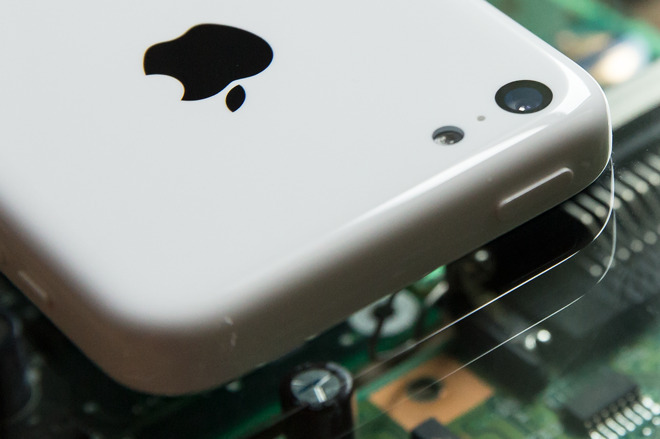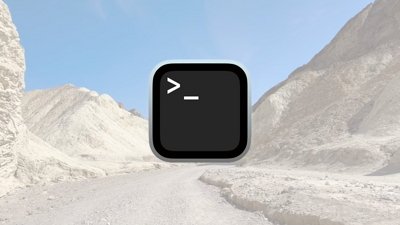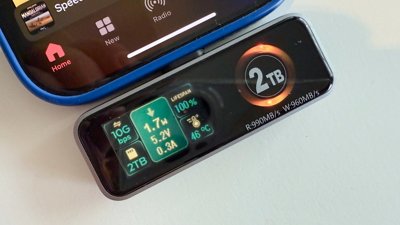As expected, Apple on Thursday filed a motion to vacate a federal court order that would require it to assist the FBI in unlocking an iPhone linked to San Bernardino terror suspect Syed Rizwan Farook, saying law enforcement demands for a "Government OS" set a dangerous precedent for the public at large.
The official filing entered into record earlier today by Apple lawyers Theodore Olson and Theodore Boutrous is comprehensive but expectedly narrow in scope. At its core, Apple's case targets what it portrays as an overly zealous reading of the All Writs Act of 1789 by a federal magistrate judge, bolstered by First Amendment rights concerns and possible undue burden on the company's operations.
In its introduction, Apple came out swinging.
This is not a case about one isolated iPhone. Rather, this case is about the Department of Justice and the FBI seeking through the courts a dangerous power that Congress and the American people have withheld: the ability to force companies like Apple to undermine the basic security and privacy interests of hundreds of millions of individuals around the globe.
CEO Tim Cook offered a concise summation of this particular argument in an interview with ABC News on Wednesday. Talking to anchor David Muir, Cook said he has no doubt that giving in to government demands creates a dangerous precedent not only for Apple, but for all tech industry players who field their own brand of encryption.
FBI investigators have so far been unsuccessful in their attempts to break into Farook's iPhone 5c and are now calling on Apple to help in bypassing a passcode counter, a security feature designed to thwart brute-force attacks. To circumvent this particular protective layer, Apple would need to write a new, compromised version of its iOS operating system.
"It's not like we have information on this phone in the next office over," Cook said. "We have no other information on this phone. None. The only way we know to get additional information is to write a piece of software that is the software equivalent of cancer. That is what is at stake here."
For its part, the FBI and Justice Department claim only to be after Farook's data, saying any Apple-devised workaround will be strictly limited to the case at hand.
The government says: "Just this once" and "Just this phone." But the government knows those statements are not true; indeed the government has filed multiple other applications for similar orders, some of which are pending in other courts.
Apple cites a New York court filing attesting to at least nine other cases in which the FBI leveraged All Writs to gain access to an iOS device.
If this order is permitted to stand, it will only be a matter of days before some other prosecutor, in some other important case, before some other judge, seeks a similar order using this case as precedent. Once the floodgates open, they cannot be closed, and the device security that Apple has worked so tirelessly to achieve will be unwound without so much as a congressional vote.
One of the more contentious — and central — issues cited in Apple's case is the "slippery slope" argument. If allowed to set precedent in this case, Apple says, the government would be able to over-reach in ways potentially in infringement of basic civil rights.
And if it succeeds here against Apple, there is no reason why the government could not deploy its new authority to compel other innocent and unrelated third-parties to do its bidding in the name of law enforcement. For example, under the same legal theories advocated by the government here, the government could argue that it should be permitted to force citizens to do all manner of things "necessary" to assist it in enforcing the laws, like compelling a pharmaceutical company against its will to produce drugs needed to carry out a lethal injection in furtherance of a lawfully issued death warrant, or requiring a journalist to plant a false story in order to help lure out a fugitive, or forcing a software company to insert malicious code in its autoupdate process that makes it easier for the government to conduct court-ordered surveillance. Indeed, under the government's formulation, any party whose assistance is deemed "necessary" by the government falls within the ambit of the All Writs Act and can be compelled to do anything the government needs to effectuate a lawful court order. While these sweeping powers might be nice to have from the government's perspective, they simply are not authorized by law and would violate the Constitution.
On the topic of undue burden, Apple outlines the arduous process of creating a viable operating system up to FBI standards. According to the declaration of Apple manager of user privacy Erik Neuenschwander, it could take six to ten engineers anywhere from two to four weeks to design, create and deploy the requested software. Neuenschwander was only able to provide estimates in his testimony, as such an undertaking has never been attempted at Apple.
To counter Apple's assertions that creating backdoor is tantamount to opening Pandora's box, the FBI contends the purposely vulnerable code can be "destroyed" after its implementation. However, such an easy solution might be difficult or impossible to achieve, Apple says. Aside from the knowledge gleaned by engineers working on the project, each step of the coding process would need to be logged and vetted. Further, if the software is ultimately destroyed, Apple might later be asked to replicate the process in another case, forcing it to start from scratch.
There is also the issue of Apple's First Amendment right to free speech, or more specifically protections against compelled speech.
"The government here is trying to use this statute from 1789 in a way that it has never been used before. They are seeking a court order to compel Apple to write new software, to compel speech," Boutrous said in an interview this week. "It is not appropriate for the government to obtain through the courts what they couldn't get through the legislative process."
If Apple's motion is denied, the company is expected to appeal its case to the 9th Circuit Court. In the more immediate future, Apple's general counsel is scheduled to discuss complex encryption issues in a U.S. House of Representatives Judiciary Committee hearing on March 1, at which FBI director and backdoor advocate James Comey will play counterpoint.
 Mikey Campbell
Mikey Campbell







-m.jpg)






 Chip Loder
Chip Loder
 Mike Wuerthele
Mike Wuerthele
 Malcolm Owen
Malcolm Owen

 Amber Neely
Amber Neely
 William Gallagher
William Gallagher



-m.jpg)






33 Comments
GovtOS? How is this not fbiOS? Seriously missed opportunity.
GovtOS v1.1 will include the new applet allowing the FBI and local Parks and Recreation Commission to secretly take stills and video from your phone. This new feature will be affectionately called the Telescreen.
To continue using your phone without GovtOS features, download the new firmware from snowdenOS.ru Not available in all market areas.
And I have said from the beginning that the FBI has no real plenary authority here. The suspects are dead, the crime is done, there is nothing left to investigate. This is the power of law enforcement to lie to judges in affidavits and go after anyone they want, when they want, under the auspices of 'doing their job.' They lie, cheat and steal all the time. That's their job. And we wonder why we have no rights
I know nothing about encryption, but I can can think in general terms. Is it not possible for the FBI to turn the phone over to Apple and let them privately and secretly break the encryption on the phone (holding the pass code with Apple, not the FBI)? Couldn't Apple turn over the information from the cracked phone, but not the key? I suppose there must be numerous reasons to prevent this cooperation, but it seems like Apple could assist the FBI in fighting crime, while keeping their key proprietary.